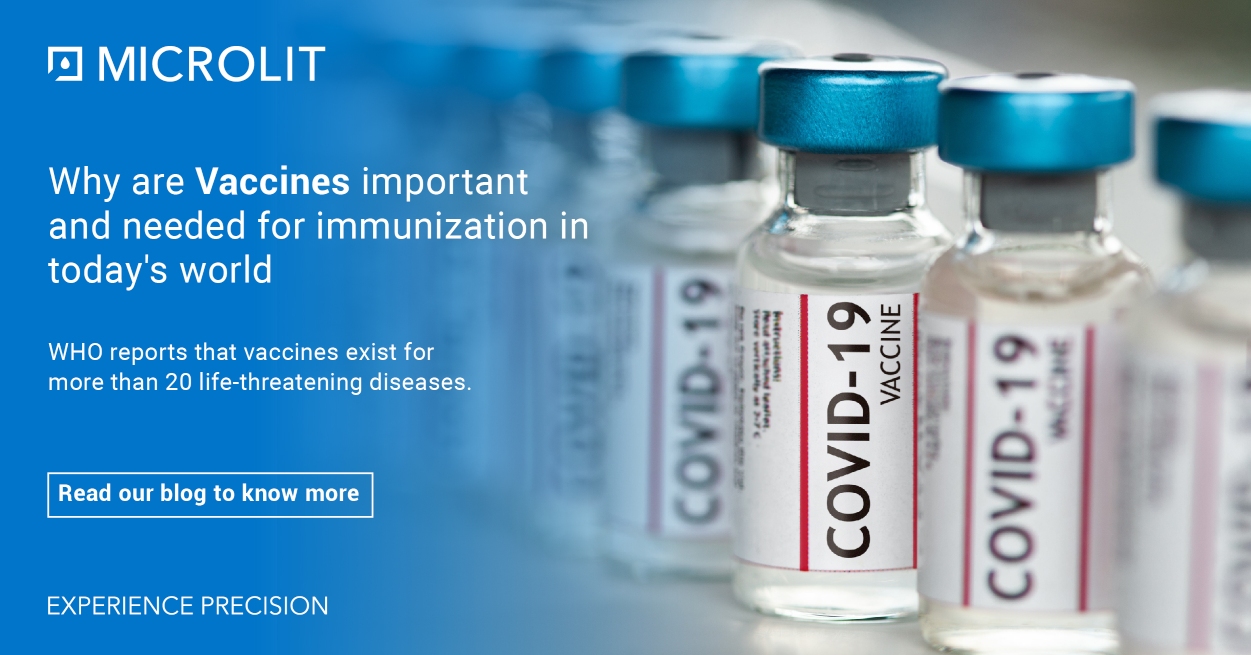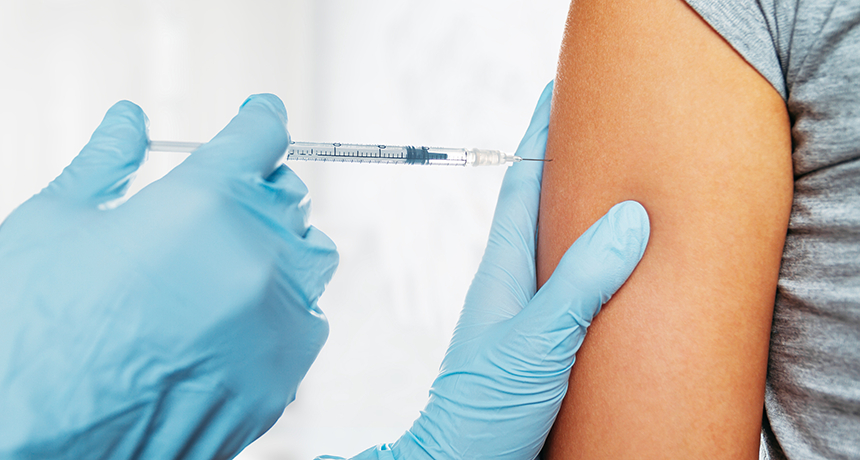Why are Vaccines Important and Needed for Immunization in Today’s World
- December 13, 2021
- ENQUIRE NOW

What are Vaccines?
A vaccine is a protective layer administered to reduce the risk of infections posed by several life-threatening diseases. It is also called immunization because when a dose of vaccine is pumped into the human blood cells, it complements our natural immune system and responds accordingly. Immunization is a key component of primary health care and is one of the best health investments money can buy.
The World Health Organisation confirms that we have vaccines to treat more than 20 life-threatening diseases. Vaccines help people live long, fruitful and healthy lives. It is important to understand that immunization prevents an average of 2 to 3 million deaths every year.
Various Types of Vaccines
There are several different types of vaccines. Each type is designed to help your immune system fight off certain kinds of germs and the serious diseases they cause.

When scientists create vaccines, they consider:
- How your immune system responds to the germ
- Who needs to be vaccinated against the germ
- The best technology or approach to creating the vaccine
There are several types of vaccines as stated below:
Live-attenuated vaccines
Since these vaccines are similar to the natural infections against which they are administered, they provide a long-lasting and strong immune response in 1 to 2 shots and can give you a lifetime of protection against a germ and the disease it causes. Live vaccines are used to protect against:
1. Measles, mumps, rubella (MMR combined vaccine)
2. Rotavirus
3. Smallpox
4. Chickenpox
5. Yellow fever
Inactivated vaccines
Although inactivated vaccines do not provide immunity, they protect against several diseases. Inactivated vaccines are used to protect against:
1. Hepatitis A
2. Flu (shot only)
3. Polio (shot only)
4. Rabies
Toxoid vaccines
These vaccines use a toxin (harmful product) made by the germ that causes a disease. They create immunity to the parts of the germ that cause disease instead of the germ itself. That means the immune response is targeted to the toxin instead of the whole germ. Like some other types of vaccines, you may need booster shots to get ongoing protection against diseases. Toxoid vaccines are used to protect against Diphtheria and Tetanus.
Subunit, recombinant, polysaccharide and conjugate vaccines
Subunit, recombinant, polysaccharide and conjugate vaccines use specific pieces of the germ like its protein, sugar or capsid (a casing around the germ). One limitation of these vaccines is that you may need booster shots to get ongoing protection against diseases. These vaccines are used to protect against:
Hib (Haemophilus influenzae type b) disease
Hepatitis B
HPV (Human papillomavirus)
Whooping cough (part of the DTaP combined vaccine)
Pneumococcal disease
Meningococcal disease
Shingles
Viral vector vaccines
Viral vector vaccines use a modified version of a different virus as a vector to deliver protection. For decades, scientists have been researching viral vector vaccines. According to several studies, these are extremely powerful against diseases such as flu, Zika and HIV. Scientists used viral vector technology to make COVID-19 vaccines as well.
- Messenger RNA (mRNA) vaccines
mRNA vaccines make proteins in order to trigger an immune response. Researchers have been studying and working with mRNA vaccines for decades and this technology was used to make some of the COVID-19 vaccines. mRNA vaccines have several benefits compared to other types of vaccines, including shorter manufacturing times and as they don’t contain a live virus – no risk of causing disease in the person who getting vaccinated. mRNA vaccines are used to protect against COVID-19.
Importance of Vaccination
Since birth, we are constantly exposed to dangerous diseases, viruses and bacteria that enter our bodies from unknown sources and affect our health. Although our body’s immune system is designed to protect us from various diseases, some disorders may lead to severe complications.

When scientists create vaccines, they consider:
Vaccines have been around for ages. Most informed parents understand how important vaccines are in the early years of their toddlers’ lives to fight infectious diseases. Medical records indicate that diseases that killed or disabled people in the past no longer exist, especially in the US. As a result, many assume that people don’t need to be vaccinated anymore. However, that is not true, as most of these diseases are prevalent globally in high numbers. Despite tremendous progress, some people still ignore the importance of vaccination. Also, the lack of facilities and awareness and poor access to vaccines are other reasons for not getting vaccinated in time.
Need for Immunization After the Pandemic
Covid-19 forced people to understand the importance of immunization. Despite its long-standing benefits, immunization has often been underestimated. However, immunization played a key role in controlling the spread of the Covid-19 virus. Millions of people around the world have been administered FDA-approved Covid-19 vaccines, according to WHO’s recommendation.
With the decreasing number of cases (compared to 2020 and early 2021), the results show these vaccines are safe and effective. Although most vaccinated people did not experience side effects, some reported issues such as the inability to perform everyday tasks with full efficiency.
Vaccination Statistics – In India and Across the World
To bring this pandemic to an end, along with social distancing and Covid-19 safety rules, Covid-19 vaccines played a significant role. In the beginning, developing Covid-19 vaccines was a great challenge due to the unrelenting increase in the number of infected people. However, things started to fall in place gradually.
Today, nearly 55% of the world’s total population has received the first dose of the Covid-19 virus, which has been acting as a protective shield in preventing the virus’s spread. As of 30 November 2021, India has administered over 1.24 billion doses overall, including first and second doses of the currently-approved vaccines. According to these stats, India will complete its second round of vaccination very soon. Looking at the current vaccination rate in India, experts believe India will be a fully vaccinated country by mid-2022.
Future of Vaccines
Do you know that scientists are working to create new types of vaccines? Here are two examples:
- DNA Vaccine is a type of vaccine that transfects a specific antigen-coding DNA sequence into the cells of an organism to induce an immune response. These are easy and inexpensive to make and they produce strong, long-term immunity. In August 2021, Indian authorities gave emergency approval to ZyCoV-D. Developed by Cadila Healthcare, it is the first DNA vaccine approved for humans.
- Recombinant vector vaccines (platform-based vaccines) act like a natural infection, so they’re especially good at teaching the immune system how to fight germs.
Conclusion
Vaccines have been humanity’s savior for many years, protecting us from innumerable life-threatening diseases. Due to Covid-19, their importance has undoubtedly increased. However, a section of society still doesn’t believe that vaccines protect human lives. We need to keep informing, educating them and bringing awareness about the importance of vaccines and immunization.
For more interesting blogs, Click Here.





